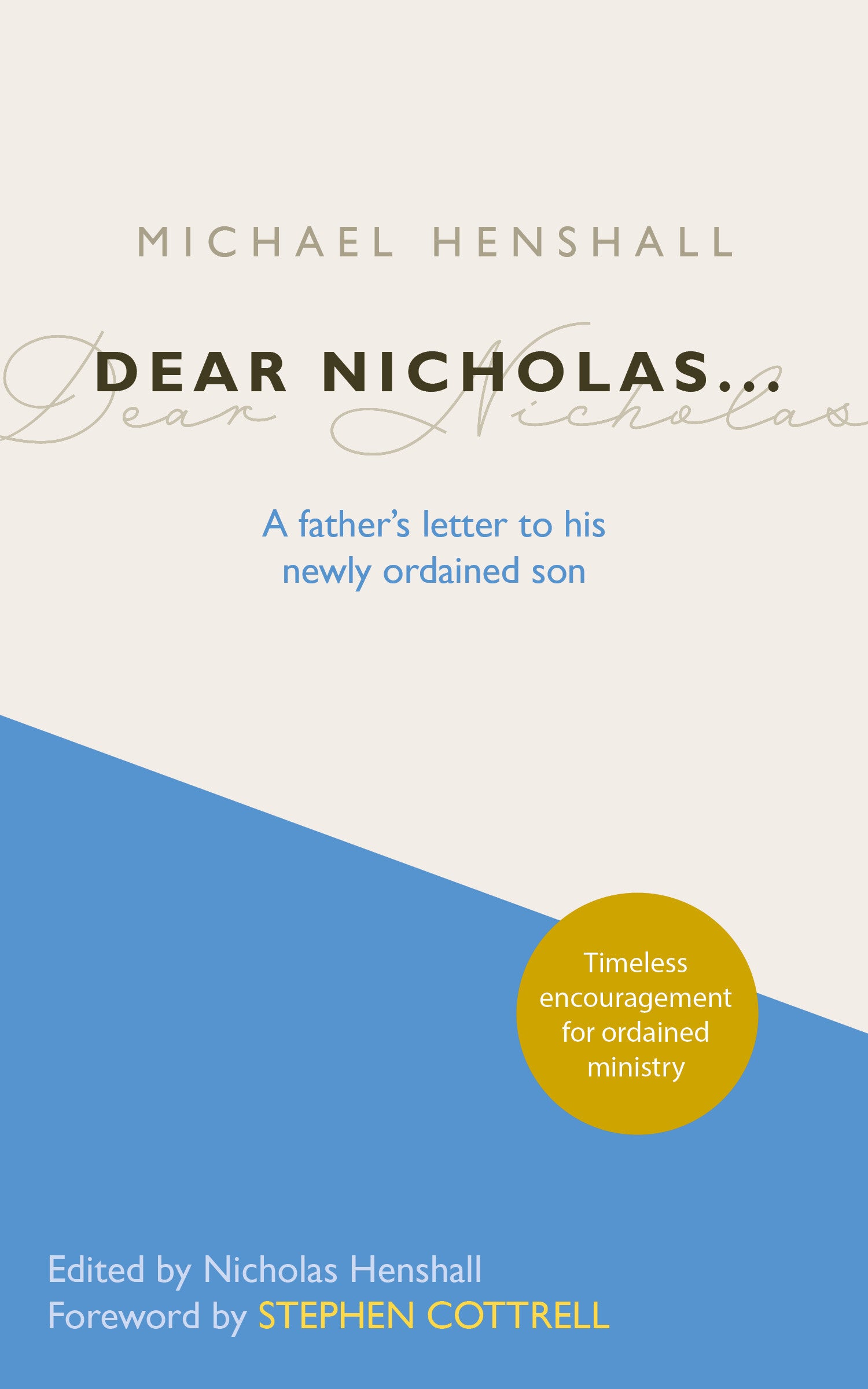Stephen Cottrell has been announced as the next Archbishop of York, to replace John Sentamu. Here is his foreword to Dear Nicholas..., a bishop’s letter to his newly-ordained son.
I began reading this book thinking it would open an interesting window on how the Church of England saw ministry forty years ago. I expected much of it to feel dated. I finished the book reinvigorated and surprised: not only had it focused on a set of insights into ordained ministry that are timeless, I felt refreshed in my own calling. The book’s beguiling simplicity, and the fact that it is an actual letter from a father to a much-loved son, and not a treatise on ministry that the author ever expected to be read more widely, gives it an immediacy and a freshness. We eavesdrop on their conversation. There are references to people and events we can’t know about. But we are better for it. We are drawn into the orbit of their exchange and their love. It also makes the book distinctively different from most of the other more worthy offerings in this overcrowded genre of good advice for others. No wonder several bishops have, for years, been distributing pirate copies of this text to those they ordain.
Of course, there is the odd occasion when the book reveals its age. But on the whole, and especially in its insistence that ministry belongs to everyone, and the prescient comments about being enslaved to gadgets, the book is startlingly contemporary.
However, it is that word “refresh” which beats a steady and stimulating rhythm throughout. The son in question to whom the father writes is a new priest, and the father an experienced bishop, and he contends that it is the spiritual disciplines established in the beginning that replenish and direct the ministry of a lifetime. This is where the emphasis on the eternal comes from, and with it the refining fires of darkness that the author so obviously encountered on his journey. These save the book from belonging only to one moment in time. In other words, this is not a book that tries to be relevant. That is its beauty.
And the other great theme of the book is love. In fact, the book is a kind of love letter. It exudes a sensible, godly love of the Church; a persevering and costly love for its people; a deep and stretching love for Christ; and, running through every page, a father’s love for his son.
I don’t know whether Michael Henshall was able to demonstrate his love for Nicholas in other ways. I hope so. However, I am aware that many men of his generation were not always good this way. But this book overflows with affection and delight as the pattern of ministry, and the collective wisdom of a lifetime, is handed, lovingly, from one generation to another.
Nicholas himself adds three fascinating vignettes; not so much a reply to his dad, but evidence that he has listened carefully. Those disciplines which shaped and refreshed his dad’s life are shaping his and bearing fruit.
He focuses on a particular text: John 20:21: “As the Father has sent me, so I send you.” I offer another. It comes earlier in John’s Gospel—Jesus says it to his friends on the night before he dies—but in many ways Jesus’ later words of commission flow from these words of reassurance: “As the Father has loved me, so I have loved you” (John 15:9). In reading this book we enter into that flow of love from the Father to the Son and from a father to a son and from generation to generation. It is a joyful, compelling and insightful read.
Stephen Cottrell
Bishop of Chelmsford











